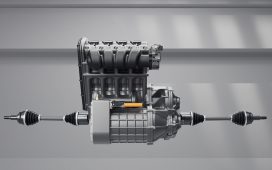Siphoning away 100,000 or so U.S. sales in 2030 isn’t going to break anybody, even if Alpine manages to do it. But consider the management distraction it will create.
The Alpine plan is to launch two EVs in America, one of them a full-size SUV. Their electric architecture has not been revealed, but it will likely come from its parent company, Renault, or from a new common EV platform created by the electric car business that Renault is spinning off, and into which Nissan is investing. Rossi also said it’s possible the new EVs could use underpinnings from the Chinese automaker Geely.
In this same time frame, Nissan intends to invest in its own new EV production in the United States, creating one new electric SUV for the Nissan brand and another for the Infiniti brand.
This begs the question: Will it serve the alliance to have a Renault luxury-segment line marketed and sold in the United States while Nissan is still endeavoring to build U.S. market share for its own luxury line? Infiniti has offered some fetching products over the past 30 or so years, but it has long struggled to make a dent in the market.
Will Alpine and Infiniti end up hustling for the same shoppers? And when the going gets tough, will Renault throw incentive dollars at the U.S. market, in competition with whatever incentive dollars Nissan will need to spend on Infiniti?
And to make it all happen, Alpine will presumably have to manufacture its new EVs in North America to qualify for federal tax credits as a locally built and sourced vehicle. Will that mean producing them in one of Nissan’s North American factories, with Nissan’s North American supply base?
And if so, will that satisfy American shoppers who are interested in a “French sports car”?










